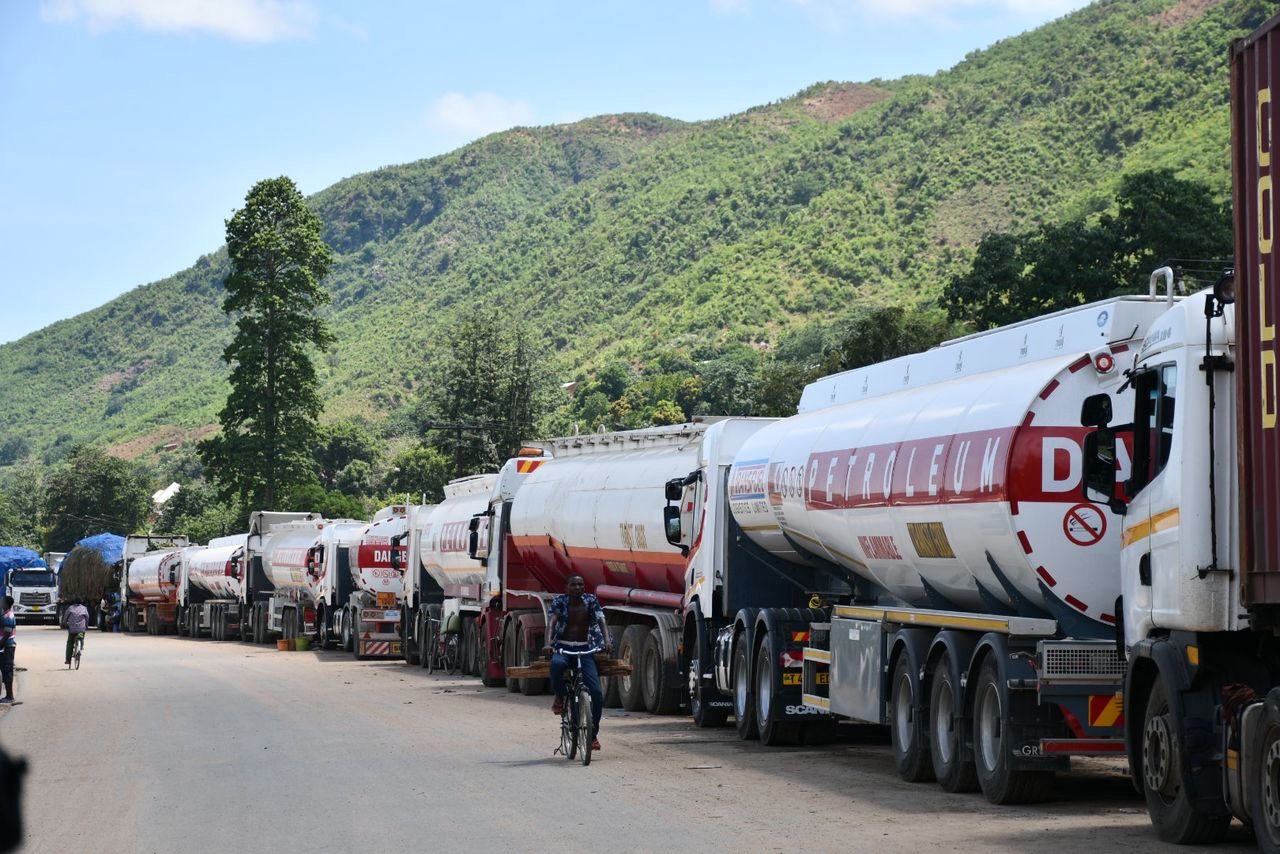
The ongoing fuel crisis has seen long queues persist across the country, as petrol distribution remains disrupted. While diesel continues to flow steadily from Mozambique’s Nacala Port, petrol deliveries from Tanzania’s Tanga Port have faced several logistical hurdles.
The country is currently awaiting the arrival of 50 million litres of fuel under a Government-to-Government (G2G) agreement. This includes 28 million litres of petrol and 22 million litres of diesel, sourced from Oman’s OQT company.
The shipment is being hailed as Malawi’s first true G2G fuel deal, directly acquired from upstream producers.
Despite the promise of this new supply line, the reality on the ground has been frustration and delays. Weeks have passed since initial fuel discharges, leaving motorists queuing at pumps with little relief.
Transporters Association of Malawi (TAM) spokesperson Frank Banda confirmed that clearance delays in Tanzania had stalled progress. “We had delays with discharging the fuel at Tanga, then clearance delays followed. But that is all done.
We loaded 400 trucks, both from Malawi and Tanzania. They were released last Friday,” he said.
“These trucks started getting into Malawi on Sunday, but we expect that all the trucks will be in Malawi by Thursday next week, that’s when we should expect the situation to normalise.”
A private source also told The Nation that improved liquidity has allowed for faster clearance, raising hopes that major towns could begin to see stability as early as Wednesday, with the rest of the country following by the weekend.
National Oil Company of Malawi (Nocma) spokesperson Raymond Likambale reported that by midday yesterday, more than 150 fuel tankers had entered the country via the Songwe Border Post in Karonga. “This marks significant progress in reinforcing domestic supply, particularly in the face of ongoing challenges,” he said.
He also highlighted that rail-based deliveries of diesel through Nacala have remained consistent, though largely overlooked in the public discussion. “While attention has largely focused on petrol, we have continued to receive consistent fuel deliveries by rail through Nacala.
Unfortunately, these efforts have gone largely unnoticed, despite their importance in supporting our broader energy needs.”
In late July, Nocma had projected that the crisis would ease by August 1.
Yet, the situation on the ground remains unchanged, with queues stretching across major cities.
Nocma, along with Petroleum Importers Limited (PIL), is responsible for importing 50 percent of the nation’s fuel each. However, Nocma has recently been shouldering nearly 80 percent of total imports.
New G2G agreements with Oman’s OQT and the Abu Dhabi National Oil Company (Adnoc) are expected to strengthen Malawi’s energy security.
These differ from last year’s arrangement, where 51.5 million litres were imported via a bilateral deal with Kenya.
Malawi’s daily fuel consumption averages one million litres of petrol and 850,000 litres of diesel. Annually, the country spends approximately $600 million on fuel, contributing to a broader $3 billion import bill, according to the Reserve Bank of Malawi.



